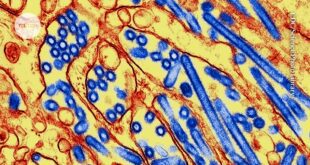Minister for the Environment, Science, and Multicultural Affairs: Leanne Linard
Science Week 2023 is being celebrated with the announcement that four Brisbane scientists will receive funding for projects that benefit the environment and combat climate change, while also strengthening the ties between Queensland and Chinese scientists. The Palaszczuk Government has committed $500,000 under the Queensland-Chinese Academy of Sciences Collaboration Science Fund, with matching funding provided by the Chinese Academy of Sciences.
Funding for Queensland-Chinese Collaboration Projects
The Queensland-Chinese Academy of Sciences Collaboration Science Fund aims to support joint science and research projects between Queensland and Chinese scientists. The fund focuses on priority areas that will deliver benefits for both Queensland and China. In this latest funding round, four projects have received $125,000 each. The researchers and their projects are as follows:
- Dr Ruirui Qiao, The University of Queensland, collaborating with the Changchun Institute of Applied Chemistry, Chinese Academy of Sciences on a Seawater-Degradable Plastic Materials project.
- Professor Zhihong Xu, Griffith University, collaborating with the Institute of Urban Environment, Chinese Academy of Sciences on a Nitrogen Cycle Under Climate Change project.
- Dr Justine Kemp, Griffith University, collaborating with the Nanjing Institute of Geography and Limnology, Chinese Academy of Sciences on investigating Past Asian-Australian Monsoon Variability.
- Professor Xiwang Zhang, The University of Queensland, collaborating with the Research Centre for Eco-Environmental Sciences, Chinese Academy of Sciences on a Green Peroxide for Pollutants Removal project.
Minister Leanne Linard’s Statement
Minister Leanne Linard, responsible for the Environment, Science, and Multicultural Affairs, highlighted the importance of relying on science to address the challenges of climate change and protect the environment. The funded projects align with the government’s objectives in climate change and environmental sustainability. They explore various areas, from lessening marine pollution to predicting extreme weather events and advancing renewable energy.
Minister Linard also emphasized the global nature of climate change and the significance of collaboration with China. By partnering with Chinese scientists, Queensland researchers can contribute to scientific development and deliver positive outcomes for all Queenslanders.
Researcher Dr Justine Kemp’s Statement
Dr Justine Kemp, Senior Research Fellow at Griffith University, expressed delight in being one of the four Queensland researchers funded through the Queensland-Chinese Academy of Sciences Collaboration Science Fund. Her project focuses on understanding the cross-hemispheric Monsoon response to major environmental changes in China and Australia. By reconstructing past rainfall data and analyzing regional ecology and fire records, the project aims to develop better prediction strategies for tropical rainfall in both countries.
Dr Kemp emphasized the significance of the funding support from the Queensland Government and the Chinese Academy of Sciences in enabling vital research to continue.
Project Descriptions
Each of the four funded projects under the Queensland-Chinese Academy of Sciences Collaboration Science Fund addresses crucial environmental and climate challenges:
1. Dr Ruirui Qiao’s Seawater-Degradable Plastic Materials project: This project aims to develop a cost-effective seawater-degradable plastic material to reduce marine plastic pollution in Australia and China.
2. Professor Zhihong Xu’s Nitrogen Cycle Under Climate Change project: This project focuses on improving our understanding of the nitrogen cycle in terrestrial ecosystems under climate change. It also aims to develop technologies for fingerprinting climate extremes and bushfires using tree ring analysis, as well as improving water and nitrogen use efficiency in dragon fruit production.
3. Dr Justine Kemp’s Past Asian-Australian Monsoon Variability project: This project aims to identify the environmental drivers of monsoons by examining sediment records from strategically selected lakes in China and Australia. The research will contribute to better prediction of tropical rainfall in both countries.
4. Professor Xiwang Zhang’s Green Peroxide for Pollutants Removal project: This project focuses on developing a sustainable technology for removing micropollutants from water. It aims to achieve this through the efficient on-site production of hydrogen peroxide driven by renewable electricity and the selective degradation of organic micropollutants.
About the Queensland-Chinese Academy of Sciences Collaboration Science Fund
The Queensland-Chinese Academy of Sciences Collaboration Science Fund was established in 2009 as a partnership between the Queensland Government and the Chinese Academy of Sciences. The fund aims to promote joint science and research collaborations between Queensland and Chinese scientists. The agreement between the two parties was renewed in 2015, with a commitment of $1.875 million over a four-year period from 2019 to support projects like those funded in this latest round.
For more information on the Queensland-Chinese Academy of Sciences Collaboration Science Fund, visit their official website.
ENDS
Media contact: Scott Chandler – (07) 3719 7339
 Mind Uncharted Explore. Discover. Learn.
Mind Uncharted Explore. Discover. Learn.
